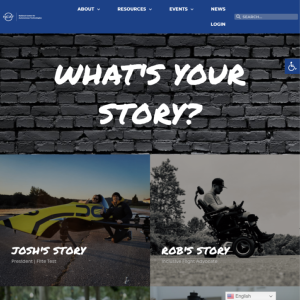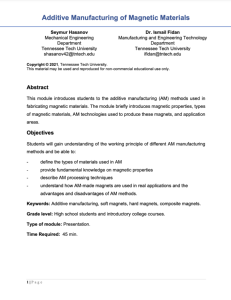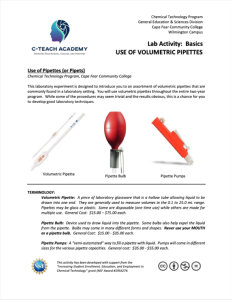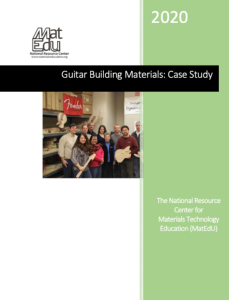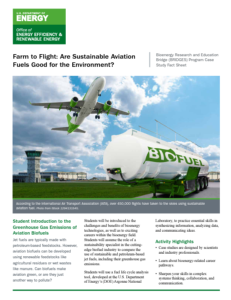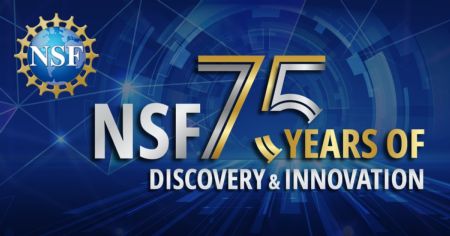ATE is Advanced Technological Education. With an emphasis on two-year colleges, the National Science Foundation's ATE program focuses on the education of technicians for the high-technology fields that drive our nation's economy.
Certified Ethical Hacker (CEH)
Workshop
May 20 Online
This workshop is intended for community college faculty interested in becoming cybersecurity faculty or faculty wishing to expand their knowledge, earn an industry certification, and strengthen their ability to incorporate new cybersecurity content in their community college curriculum. This workshop is not intended for students or other non-faculty.
The Ethical Hacking workshop is an in-depth and comprehensive course that delves into the common tactics employed by hackers to breach systems. From SQL injection and spear phishing to buffer overflows, this workshop equips you with the knowledge and skills needed to defend against these attacks. By immersing you in the hacker mindset, you will gain a better understanding of how to anticipate and protect against potential threats.
(View More)
How to Produce a Livestreaming Event (that is Accessible, Green, and Open Source)
Webinar
May 21 Online
This webinar will introduce accessibility techniques and approaches to help livestream event producers plan and design their virtual, hybrid, or in-person events that get broadcasted.
This webinar will look at examples of different types of livestreams, basic equipment and software that's needed, and how to manage human-written live captions and sign language interpretation.
In addition to accessibility, this webinar will touch on low-carbon producing as well as using commons-based, open-source software for livestreaming.
(View More)
BioMADE Mentorship Program Information Session
Webinar
May 22 Online
Attend this webinar to learn about volunteer opportunities with BioMADE’s new mentorship program. The program welcomes volunteers from both BioMADE member and non-member organizations. Please feel free to share this information with your colleagues who may be interested. The goal of the mentorship program is to inspire and provide guidance to community college and university students interested in learning about bioindustrial manufacturing careers and help build a diverse future workforce. The program is seeking mentors and/or volunteers in northern California for career development activities for three cohorts of students in the 2024/2025 academic year. Attend this webinar to learn how you can get involved.
(View More)
Webinar: NSF ATE Proposal Budget and Budget Justification
Webinar
May 22 Online
This webinar covers all aspects of the budget and budget justification for NSF ATE proposals. Topics include: how to prepare a budget for your NSF ATE grant, what to include in your budget category, how to align the budget and project description, how to prepare a budget justification, and how to avoid common errors. Upon completion you will know how to build a budget and budget justification for a competitive grant proposal for NSF ATE.
(View More)
NISOD 2024 International Conference on Teaching and Leadership Excellence
Conference
May 25 Austin, TX
NISOD’s International Conference on Teaching and Leadership Excellence is the definitive gathering of community and technical college educators passionate about teaching and learning. Over the years, NISOD’s annual conference has provided faculty, administrators, and staff with the resources, ideas, and solutions that drive excellence in all areas of community and technical college campuses.
(View More)
2024 IEEE 74th Electronic Components and Technology Conference
Conference
May 28 Aurora, CO
The Electronic Components and Technology Conference (ECTC) is the premier international event that brings together the best in packaging, components and microelectronic systems science, technology and education in an environment of cooperation and technical exchange. ECTC is sponsored by the IEEE Electronics Packaging Society.
The technical program contains papers covering leading edge developments and technical innovations across the packaging spectrum. Topics include advanced packaging, modeling and simulation, Photonics, interconnections, materials and processing, applied reliability, assembly and manufacturing technology, components and RF, and emerging technologies.
(View More)
Summer of Nanopore Sequencing 2024 - Arecibo C3 STEM Center
Workshop
May 29 Arecibo, PR
Nanopore sequencing analyzes individual DNA molecules in real time, and is the “next big thing” in biology education, making real-time DNA sequencing accessible to bioscience teachers and faculty. The DNA Learning Center and Oxford Nanopore are adapting nanopore sequencing for use in education, and you can be among the first to test their integrated Oxford Nanopore MinION/DNA Subway system that can provide DNA sequencing and analysis any time, any place, by anyone, and at an affordable price. Workshop participants will each receive a $300 stipend.
(View More)
NICE Conference
Conference
June 3 Dallas, TX
This year’s conference theme “Strengthening Ecosystems: Aligning Stakeholders to Bridge the Cybersecurity Workforce Gap” highlights the collective effort to strengthen the cybersecurity landscape. By joining forces with key partners, we can foster a more robust cybersecurity ecosystem to bridge the workforce gap.
(View More)
BIO International Convention
Conference
June 3 San Diego, CA
BIO 2024 is heading back West to San Diego, CA at the San Diego Convention Center. This conference features innovative programming around the current and future state of biotech. Including areas like therapeutic frontiers, the business of biotech, regulatory and policy outlooks, and human capital.
Also, take part in BIO One-on-One Partnering to find potential business partners and request meetings through our easy-to-use online system. You can expect to find senior biotech executives, business development leaders, and investors from premier firms participating.
(View More)
GRRATE Summer Institute - Archer
Student Event
June 3 Archer, FL
Rising 9th - 12th grade students can attend an 8-day summer STEM camp at one of the five Santa Fe College Academic Centers. The summer 2024 curriculum will cover hands-on learning for rocketry, where students can learn to design, build and launch rockets along with improving math skills.
There will be no cost for this program for campers and GRRATE is excited about getting students thinking about careers in STEM (Science, Technology, Engineering and Math) technical fields after graduation.
This is an 8-day camp offered in five locations from 9 a.m. - 3 p.m.
- Andrews Center (Starke) - June 24 - July 5, 2024
- Blount Center (Downtown Gainesville) - June 17 - 27, 2024
- Davis Center (Archer) - June 3 - 13, 2024
- Perry Center (Alachua) - July 15 - 25, 2024
- Watson Center (Keystone Heights) - July 15 - 25, 2024
(View More)
2024 PTI Conference
Conference
June 4 Portland, ME
The 2024 Postsecondary Disability Training Institute (PTI) Collaborative on Postsecondary Education and Disability Conference will be taking place from June 4th – 7th in Portland, Maine. The objective of the Training Institute is to assist concerned professionals to meet the unique needs of college students with disabilities. Participants can select sessions about a wide range of cutting-edge topics in variety of formats, including 3-day strands, single sessions, poster presentations and pre-institute sessions. All formats provide participants with in-depth information and adequate time for questions and follow-up activities.
Participants also have opportunities to share information and network with each other at various activities throughout the week.
(View More)
University of Minnesota: Micro and Nanotechnology Health & Safety Workshop 2024
Workshop
June 4 Minneapolis, MN
This summer MNT-EC is offering a three-day workshop in partnership with the University of Minnesota – Environmental Health Sciences Division. Topics currently planned for each day.
- Occupational Hygiene Principles Applied to MNT
- Measurement of Airborne and Colloidal MNT Particles
- Preventing Exposures to MNT Particles
- Practical Applications of MNT Health and Safety Principles
Offered by the University’s Environmental Health Sciences Division and its Nano Center, the MNT Health and Safety workshop will cover safety practices in the instructional laboratory, including understanding micro/nanoparticle properties, selecting and using personal protective equipment, and safely carrying out chemical syntheses of nanomaterials.
(View More)
Water, Water Everywhere - Nanotechnology Applications (Zoom Workshop)
Workshop
June 4 Online
The exponential increase in nanotechnology research and equipment had led to a new level of understanding of the world around us. That understanding is resulting in new applications and products.
These include glaucoma detection based on the structure in a butterfly's wing, shark skin structures applied to airplane wings that reduces air friction and increases fuel efficiency and small stations that pull water out of desert air. The research and multiple applications rely on macro level traditional science concepts as well as phenomena that only occurs at the nanoscale. This workshop will investigate several examples of nature's applications of nanoscale phenomena and how researchers are applying that knowledge to new products and applications. Education content applicable for integration into traditional science courses will be presented.
Presenter: Deb Newberry
(View More)
ATE Projects and Centers
Advanced Manufacturing Technologies topics include:
- Additive manufacturing
- Automotive manufacturing
- General manufacturing
Agricultural and Environmental Technologies topics include:
- Agriculture and aquaculture
- Environmental technologies
- Natural resources
- Nuclear power
- Solar energy
- Wind power
Bio and Chemical Technologies topics include:
- Biotechnology
- Chemical and process technologies
Engineering Technologies topics include:
- Electronics and controls
- General engineering
- Marine technologies
- Materials technologies
- Optics
- Space technologies
General Advanced Technological Education topics include:
- Evaluation
- Learning research
- Recruitment
- Teacher preparation
Information and Security Technologies topics include:
- Geospatial technologies
- Information and communications technologies
- Logistics
- Security, information assurance, and forensics
Micro and Nanotechnologies topics include:
- MEMS
- Microsystems
- Semiconductors
This resource from the National Center for Autonomous Technologies (NCAT) provides stories about professionals in the autonomous technologies field. In these stories, professionals describe themselves, their professional background, their interests in autonomous technologies, their organizations and jobs, successes, failures, tips for prospective students, and future developments in autonomous technologies. Topics covered include autonomous simulation, unmanned aircraft systems (UAS), geographical information systems (GIS), disabilities, inclusive flight advocates, and more.
(View More)
This 17-page module, from Tennessee Technological University, "introduces students to the additive (AM) methods used in fabricating magnetic materials." This module briefly covers "magnetic properties, types of magnetic materials, AM technologies used to produced these magnets, and application areas." After completing the module, students will gain understanding of the working principles of AM manufacturing methods and be able to:
- define the types of materials used in AM,
- provide fundamental knowledge on magnetic properties,
- describe AM processing techniques, and
- understand how AM-made magnets are used in real applications and the advantages and disadvantages of AM methods.
(View More)
This 9-page professional development activity, provided by Cape Fear Community College, introduces STEM instructors to the proper use of volumetric pipettes (or pipets). The laboratory procedure provides background on the use, parts, and setup of a volumetric pipette, an introductory problem, instructions for the lab, and lab questions. In the first part of the activity, participants will deliver various amounts of water into a container using a volumetric pipette, aiming to deliver the exact amount of liquid specified. In the second part, participants will use volumetric pipettes make solutions containing water and copper sulfate pentahydrate to generate a calibration curve on an ultraviolet-visible (UV-Vis) spectrometer. Additionally, a spreadsheet is included, allowing an instructor to input the participant's laboratory data to determine if their tolerance meets industry and glassware standards.
(View More)
This 16-page case study describes the STEM Guitar Project. Guitar building, thermally modified wood, torrefied wood, materials science, making decisions for products and materials, and other related areas are highlighted. Background information on the STEM Guitar Project, emails between project stakeholders, and takeaways are also provided.
(View More)
The Bioenergy Research and Education Bridge Program (BRIDGES) creates case study curriculum. BRIDGES is "focused on topical, authentic case study scenarios in the bioenergy field." The cases studies explore "... solutions for a more secure energy future using bioenergy technologies while addressing cultural responsiveness and issues surrounding diversity."
This case study, from the U.S. Department of Energy, is aimed at introducing students to sustainable aviation fuels. During the activity, "students will assume the role of a sustainability specialist in the cutting-edge biofuel industry to compare the use of sustainable and petroleum-based jet fuels, including their greenhouse gas emissions." Students will learn about bioenergy, environmental impact, life cycle analysis, computational models, and more.
A .zip file includes all case study materials, such as a fact sheet, instructor guide, and supplemental materials. Users may download the materials for one or all four case studies.
(View More)
| Active ATE Centers | 23 |
| Active ATE Projects | 324 |
| ATE Resources | 6,568 |
| New Projects/Centers | 79 |
| New Resources | 172 |
ATE Resources by Subject Area
ATE Events by Subject Area
NSF Celebrates 74 Years of Innovation
On May 10, the U.S. National Science Foundation (NSF) proudly commemorates its 74th anniversary, celebrating over seven decades of groundbreaking advancements in science and technology.
Since its establishment in 1950, NSF has been a beacon of support for visionary ideas and transformative innovations spanning the spectrum of scientific and engineering disciplines.
Next year, May 10, 2025, NSF will celebrate 75 years of innovation and discovery. In honor of this momentous occasion, a year-long series of events and activities will unfold across the nation, spotlighting the profound impact of NSF-funded research on society and the economy. From new insights into the natural world to fostering technological breakthroughs that shape lives, NSF's contributions have been integral to driving progress and enhancing understandings of the world.
Stay tuned for on the NSF website for updates and invitations to participate in the festivities for 75 years of scientific excellence.
(View More)
High School CS Classes Lead to More Degrees
A recent study conducted in Maryland demonstrates the significant impact of high-quality computer science courses in high schools on students' career trajectories and diversity within the field.
Led by Jing Liu, an assistant professor at the University of Maryland, the study found that students who took such courses were 10 percentage points more likely to major in computer science in college and 5 percentage points more likely to complete a CS degree program. Particularly noteworthy was the positive effect on underrepresented groups, including females, Black students, and those from low socioeconomic backgrounds, indicating progress in addressing disparities in the tech industry. Despite these advancements, challenges remain in broadening participation and ensuring teacher qualifications.
While 57% of U.S. high schools offer introductory computer science courses, efforts like Maryland's statewide requirement for high schools to offer high-quality computer science courses highlight the need for broader participation and improved teacher training. Additionally, addressing the shortage of qualified teachers remains a significant hurdle, requiring strategies to motivate and...
(View More)
Upcoming Event: NICE Conference & Expo
The National Initiative for Cybersecurity Education (NICE) is proud to announce the upcoming NICE Conference & Expo: Strengthening Ecosystems, scheduled from June 3rd to June 5th, 2024, at the Sheraton Dallas. This three-day event will serve as a platform for cybersecurity stakeholders to converge, collaborate, and address the pressing need to bridge the cybersecurity workforce gap.
With the theme "Strengthening Ecosystems: Aligning Stakeholders to Bridge the Cybersecurity Workforce Gap," the conference underscores the collective endeavor required to fortify the cybersecurity landscape. By uniting with key partners, participants will delve into strategies and initiatives aimed at fostering a more resilient cybersecurity ecosystem.
Supported by NICE, a program of the National Institute of Standards and Technology (NIST) under the U.S. Department of Commerce, this conference represents a significant opportunity for professionals, educators, policymakers, and industry leaders to exchange insights, best practices, and innovative approaches in cybersecurity workforce development.
Registration is now open, with regular registration available until May 14, 2024, or until capacity is...
(View More)
Deadline: ATE Future Leaders Fellows
Don't miss out on the Request for Applications for AACC's brand-new ATE Future Leaders Fellows program. AACC is calling for applications from professionals at two-year colleges who are members, aiming to boost their leadership abilities and contribute to a nationwide effort in STEM technician education and capacity building.
Supported by the National Science Foundation (NSF) under its Advanced Technological Education (ATE) program, this innovative initiative offers ATE community college professionals the chance to join the AACC John E. Roueche Future Leaders Institute (FLI) or Future Presidents Institute (FPI). They will also act as program ambassadors, promoting awareness of the STEM technician education field and showcasing the opportunities and resources provided by NSF ATE funding.
The ATE Future Leaders Fellows program is committed to cultivating community college leaders equipped with the skills to foster relationships with businesses and industries, enhance STEM capacity, and promote a culture of innovation on campus, preparing students for the evolving world of work.
To learn more, visit www.aacc.nche.edu/ATEFellows. The deadline to apply is April 30, 2024.
(View More)

 List
List